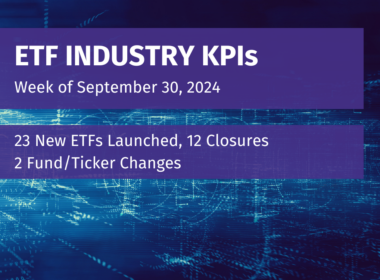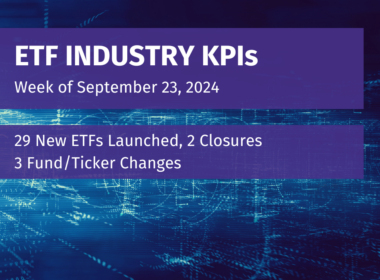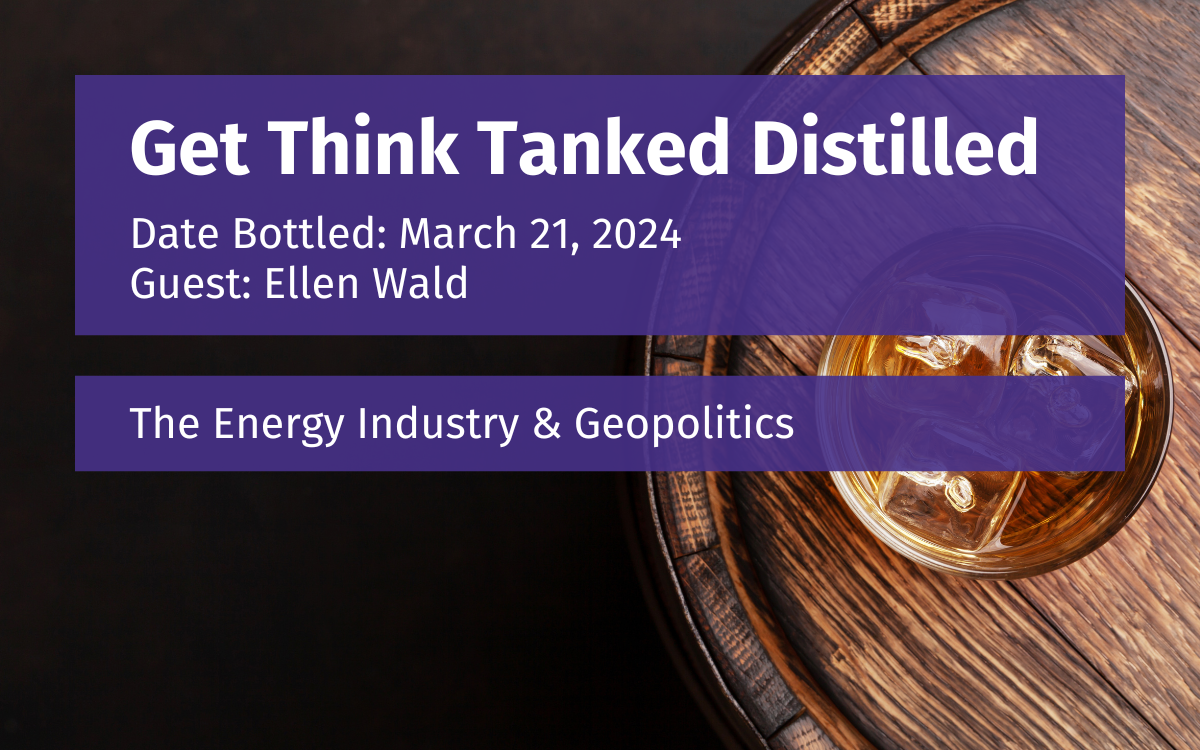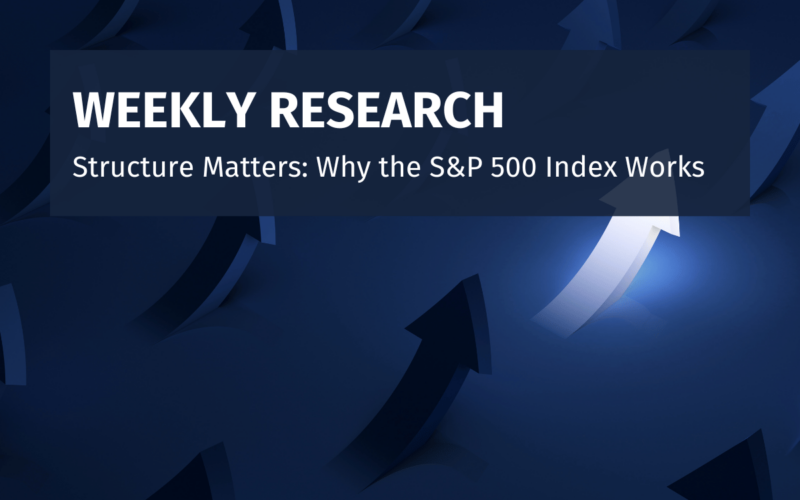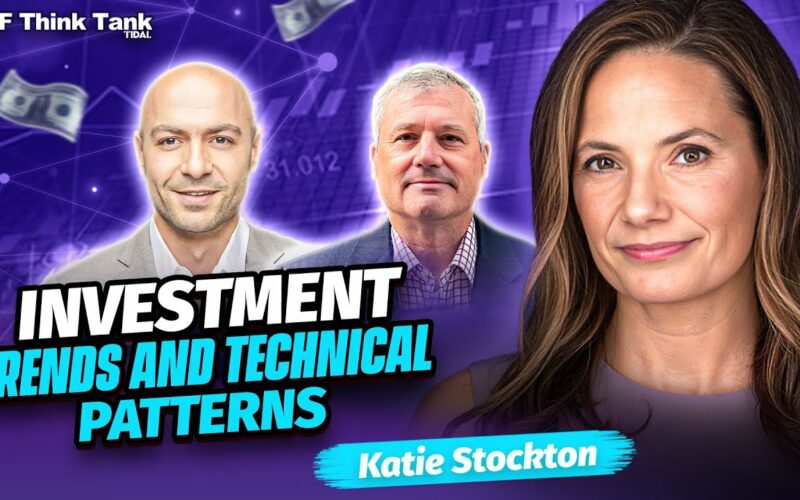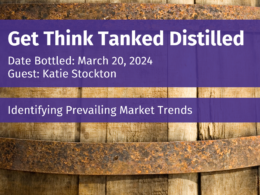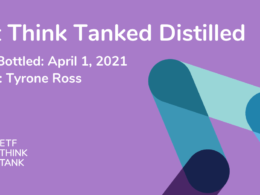The emergence of environmental, social & governance (ESG) investing has gone from an honorable intention to something quite muddled and maybe even a bit controversial. This has especially been the case in the energy sector where traditional oil & gas companies try to integrate renewable energy initiatives into their business plans. Dr. Ellen Wald, the president of Transversal Consulting and author of the book “Saudi Inc.”, knows this well through her work studying the energy industry and how it gets intertwined with geopolitics. She joins the ETF Think Tank to discuss these topics and more.
Wald describes “Saudi Inc.” as “a history book, but not an academic book”. It takes a deep dive into Saudi Arabia’s oil industry and how Saudi Aramco has turned itself into one of the best-run companies in the world. Understanding Aramco really involves knowing who the Saudi royal family is and what their priorities are, which is to say that Aramco has evolved as the Saudi vision is to maximize the profits for all Saudi Arabia.
When it comes to ESG investing, Wald concedes that there are a lot of misnomers out there today. For example, there’s no regulation around ESG disclosures, so what companies share and how much information they share can be all over the map. Companies, such as BMW, may get a better ESG rating than Tesla simply because they disclose more information. Geography can also play a big part. European companies, for example, have more disclosure regulations than U.S. companies, so they generally tend to score better. Even just labeling something as “an ESG company” can be confusing since there’s no one universal definition.
So who then is responsible for the advocacy and education around ESG? A lot has been driven by the environmental groups who sought to target and expose companies that they felt “weren’t ESG enough”. There are several good reports out there that were done by academics who were analyzing the data and information. The general finding was that any excess returns from ESG-centric strategies was driven mostly by money going into them, not necessarily by any meaningful change in how these companies operated.
From a corporate perspective, it’s all about branding. Wald asks when was the last time you saw an ad from a traditional oil company where it promoted its oil business instead of some clean energy development? The ESG movement has pushed a lot of legacy energy companies into alternatives. There’s been an incredible backlash against companies, such as ExxonMobil and Chevron, but people need to understand how much of what they take for granted in their daily lives originates from energy companies; things, such as laundry detergents and refrigerants. The modern lifestyle is supported by these energy companies and people should know that.
There’s a theory that pushing the ESG agenda could result in fewer wars or less famine or just a better lifestyle in general, but Wald thinks it’s impossible to prove that thesis. Today, socially responsible investing really involves just avoiding companies they don’t like. A lack of investment doesn’t necessarily force change (e.g. medical companies won’t stop producing abortion drugs). Change could happen, however, when banks decide to stop lending to gun manufacturers or a company wishing to build a new pipeline. That may not work either though as Wald could see companies instead turning to China or Russia for financing instead. You’re not necessarily stopping the fuels from coming out of the ground, but you are changing how the world operates to get these things.
In the end, Wald says that we’re not even close to the point of being ready to move away from fossil fuels. If we flipped the switch today, the world would only be cold, dark and hungry. We just can’t do it now. Too much of our current way of life is reliant on traditional fuels and we don’t have the technology yet to get off of fossil fuels even if we wanted to. The best thing we can do right now is have conversations around what we can do to transition and find the best way to do it. Renewables can complement natural gas well, but augmenting makes more sense right now than replacing.
Other key takeaways:
- The “S” in ESG is easily the most difficult of the three letters to define because everybody has a different definition. What would be excluded in an LGBTQ-friendly fund vs. a Catholic values fund would be very different. What about a company that produces electric battery components, but uses slave labor? Lumping all of these things under a single “social” umbrella has become troublesome.
- Nobody says they like regulations, but the big players like regulation if it keeps smaller companies out. Everybody wants good monitoring, but it’s usually driven by the large companies that are 1) already in or near compliance and/or 2) it’s more difficult for competitors to comply.
- Will all of this even matter for the next iteration? Is there any credibility left? ESG investing has become more about giving people a feeling that they’re doing something positive. There’s a big feel-good piece surrounding ESG, but there’s a lot of financial literacy that’s lacking. We shouldn’t be directing people’s money into “feel good” products if they’re not appropriate for them.
Disclosure
All investments involve risk, including possible loss of principal.
The material provided here is for informational purposes only and should not be considered an individualized recommendation or personalized investment advice. The investment strategies mentioned here may not be suitable for everyone. Each investor needs to review an investment strategy for his or her own particular situation before making any investment decision.
All expressions of opinion are subject to change without notice in reaction to shifting market conditions. Data contained herein from third-party providers is obtained from what are considered reliable sources. However, its accuracy, completeness, or reliability cannot be guaranteed.
Examples provided are for illustrative purposes only and not intended to be reflective of results you can expect to achieve.
The value of investments and the income from them can go down as well as up and investors may not get back the amounts originally invested, and can be affected by changes in interest rates, exchange rates, general market conditions, political, social, and economic developments, and other variable factors. Investment involves risks including but not limited to, possible delays in payments and loss of income or capital. Neither Tidal nor any of its affiliates guarantees any rate of return or the return of capital invested. This commentary material is available for informational purposes only and nothing herein constitutes an offer to sell or a solicitation of an offer to buy any security and nothing herein should be construed as such. All investment strategies and investments involve risk of loss, including the possible loss of all amounts invested, and nothing herein should be construed as a guarantee of any specific outcome or profit. While we have gathered the information presented herein from sources that we believe to be reliable, we cannot guarantee the accuracy or completeness of the information presented and the information presented should not be relied upon as such. Any opinions expressed herein are our opinions and are current only as of the date of distribution, and are subject to change without notice. We disclaim any obligation to provide revised opinions in the event of changed circumstances.
The information in this material is confidential and proprietary and may not be used other than by the intended user. Neither Tidal nor its affiliates or any of their officers or employees of Tidal accepts any liability whatsoever for any loss arising from any use of this material or its contents. This material may not be reproduced, distributed, or published without prior written permission from Tidal. Distribution of this material may be restricted in certain jurisdictions. Any persons coming into possession of this material should seek advice for details of and observe such restrictions (if any).




